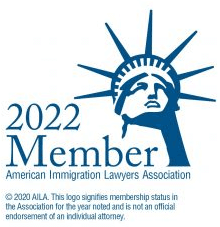
Office Location is Irving, Texas and Albuquerque, New Mexico
Call 214-609-2242
Recent Blog Posts
USCIS Grants Additional Time to Respond to Requests for Evidence and Submit Notices of Appeal
USCIS is extending the flexibilities to give more time to applicants to respond to requests for evidence and submit appeals, among other measures. The new flexibility applies to notifications issued between between March 1 and Sept. 11, 2020, inclusive. Applicants who have received one of the following notifications will have an additional 60 days to respond after the due date indicated in the notification.
- Requests for Evidence;
- Continuations to Request Evidence (N-14);
- Notices of Intent to Deny;
- Notices of Intent to Revoke;
- Notices of Intent to Rescind and Notices of Intent to Terminate regional investment centers;
- Filing date requirements for Form N-336, Request for a Hearing on a Decision in Naturalization Proceedings (Under Section 336 of the INA); or
- Filing date requirements for Form I-290B, Notice of Appeal or Motion.
USCIS' Plan to Furlough Employees can Severely Impact Immigration
Back in May, U.S. Citizenship and Immigration Services had announced the potential furlough of up to 70% of its workforce in August if they do not receive the necessary funding required to keep the agency open. With a lower number of immigrants applying for immigration benefits and the federal government not agreeing to provide the $1.2 billion loan the agency required, furloughs seem imminent. USCIS has recently issued furlough notices to some employees, signaling potential drawbacks for applicants.
USCIS receives a significant portion of its funding from filing fees paid by applicants, but these have dropped to half since the COVID-19 pandemic started. If Congress does not allocate additional resources to USCIS, immigrants could expect longer wait times to see their applications adjudicated. If you are concerned about how these issues may potentially impact your case, contact our office for a initial consultation.
New Proposed rule Attacks Asylum Seekers
Within immigration law, asylum seekers are one of the most vulnerable populations. In order to qualify for asylum, applicants must demonstrate a "credible fear of persecution or torture." A new proposed rule would make the asylum process significantly more difficult, allowing denials to be issued without a right to have immigration case heard in court. It would also change the standard for "credible fear of persecution or torture," making an approval almost impossible for those immigrants seeking protection based on being victims of domestic violence, gender-based discrimination, or gang-related violence. The changes also make the process more challenging, allowing the government to put more weight on discretionary factors. These measures would end the possibility of asylum for thousands of immigrants escaping unspeakable harm and violence in their home countries.
Ban on Immigrant and Non-immigrant Visas Extended
The United States government has extended the ban on immigrant visas issued outside the United States, adding temporary visas as well. The ban is now extended until the end of 2020 and it now includes H-1B, H-2B, L-1, and J-1 visas. The few exceptions, such as the ones for immigrants working in COVID-19 treatment and prevention, would not apply to a significant number of applicants. This measure should not affect individuals filing for their green card in the United States through Adjustment of Status or those who already hold a visa.
Victory for Dreamers! The U.S. Supreme Court issues decision in favor of DACA
This past June 18th, the United States Supreme Court ruled that the government’s attempt to end DACA was unlawful. The court found that the U.S. Department of Homeland Security does have the authority to end DACA, but that it had proceeded in an arbitrary and capricious manner in doing so, thus the ending of the program is illegal.
This is a life changing decision for thousands of young immigrants who were brought to this country as children. It allows them to continue to life, work, and pursue an education in the United States. U.S. Citizenship and Immigration Services has yet to implement the changes, but the decision provides a temporary stop to the end of the program, as multiple challenges to DACA continue to move through the courts. Once new guidelines are implemented, initial applications for DACA-eligible individuals and new applications for Advance Parole (travel permits) should be accepted by the government.
Seeking asylum: What to know
Immigration law continues to be a fascinating and interesting topic of conversation in our country. It is volatile and complex and one of the many questions that arise are typically linked to issues on asylum. This particular area of immigration law has many layered and detailed nuances that might confuse asylum seekers and it is important to know them to better see if any potential candidates can apply to it or not.
Understanding asylum
Each year, there are thousands of foreigners who choose to enter into the United States seeking asylum from their home countries. Asylum is the protection that a country can grant unto a person who is classified as a refugee.
A refugee is a person who is being persecuted or will be persecuted from his or her home country and is seeking the protection of another.
How to qualify
There are various ways that a person can qualify for asylum and the applicant must qualify in one out of the five following categories. The person must be persecuted or in danger of being persecuted due to his or her race, religion, nationality, membership to a particular social group, and/or political opinion.
Immigrating to the US may become much more expensive in 2020
The U.S. immigration system has been in a state of flux for some time now. Officials seem determined to change even longstanding, fundamental aspects of the process. One of the latest targets? The cost of immigration.
In 2020, immigrating to the U.S. will likely become much more expensive for most people. Here are some of the biggest expected changes.
A fee for asylum seekers
When the current White House administration announced the proposed fee changes in November of 2019, many people highlighted the impact on asylum seekers. Traditionally, the U.S. has not charged individuals looking for this type of humanitarian help. That is in line with the rest of the world – currently, only three countries require asylum seekers to pay a fee.
The United States may soon make it four. Under the proposed rules, asylum seekers would have to pay a $50 application fee.
A more expensive citizenship form
Another proposed change that raised eyebrows? The new fee for the N-400 form, which green card holders use to apply for citizenship. The current fee is $640, plus an $85 biometrics cost. Under the new rules, the cost would jump to $1,170, an increase of more than 60%.
Could employment screening hurt immigrant workers?
Texas is the fastest-growing state in America. And in industries like construction, retail trade and manufacturing, employers look to immigrant workers to provide for their business.
However, as talks about E-Verify requirements for all Texas employers continue, such rules could cause substantial damage if they get approved.
What is it?
E-Verify is an electronic web-based system that allows certain employers to confirm their workers are U.S. citizens. Employers use E-Verify to check a new hire’s employment eligibility by matching information from their I-9 forms.
Right now, only public employers in Texas must use E-Verify. But requiring businesses across the state to use it could hurt Texas’ economy. Some people say E-Verify has numerous errors. Sadly, local requirements to use the system could hurt business profitability and keep countless Texans out of work.
Common issues with E-Verify
According to the American Civil Liberties Union (ACLU), this is how mandatory E-Verify requirements could hurt immigrant workers:


















